Video games: they entertain us, challenge us, and sometimes, even reveal hidden truths about ourselves. While many games offer escapism and heroic journeys, some delve into the murkier aspects of human nature, allowing us to explore the darker impulses we usually keep hidden. These aren’t necessarily “bad” games; in fact, many are incredibly well-crafted and thought-provoking. They simply provide a space to indulge in behaviors and choices that would be unthinkable in reality, offering a glimpse into the darker potentialities that lie dormant within us all.
Join us as we journey into the heart of digital darkness, exploring 10 games that embrace our capacity for mischief, mayhem, and outright villainy. Buckle up, it’s going to be a wild ride.
1. Planet Coaster

Theme park management games, with their colorful facades and promises of family fun, seem like bastions of wholesome entertainment. But beneath the surface of these digital wonderlands lurks a darker impulse – the temptation to transform meticulously crafted parks into chaotic spectacles of disaster.
“Planet Coaster,” the reigning champion of park simulators, exemplifies this duality perfectly. On one hand, it provides all the tools to build a thriving theme park empire – designing intricate rollercoasters, managing finances, and catering to the whims of demanding guests. But it’s the game’s physics engine, with its realistic depiction of gravity and momentum, that unlocks the potential for truly devilish creations.
Who hasn’t imagined sending a coaster train hurtling off the tracks, watching in morbid fascination as the carnage unfolds in slow motion? Or meticulously crafting a park designed to maximize guest misery – with labyrinthine pathways, overpriced bathrooms, and rides guaranteed to induce motion sickness? These acts of virtual vandalism, while ethically dubious, tap into a primal sense of mischief, offering a safe outlet for our darker impulses.
It’s important to note that “Planet Coaster” never explicitly encourages this type of behavior. In fact, the game’s core mechanics reward efficiency, creativity, and guest satisfaction. However, the developers clearly understand the allure of the dark side, embedding within their creation the potential for both joyous creation and glorious destruction. It’s this freedom of choice, the ability to be both a benevolent architect of happiness and an agent of chaos, that makes park management games so captivating.
2. GTA Online: Where Being Bad is Rewarded
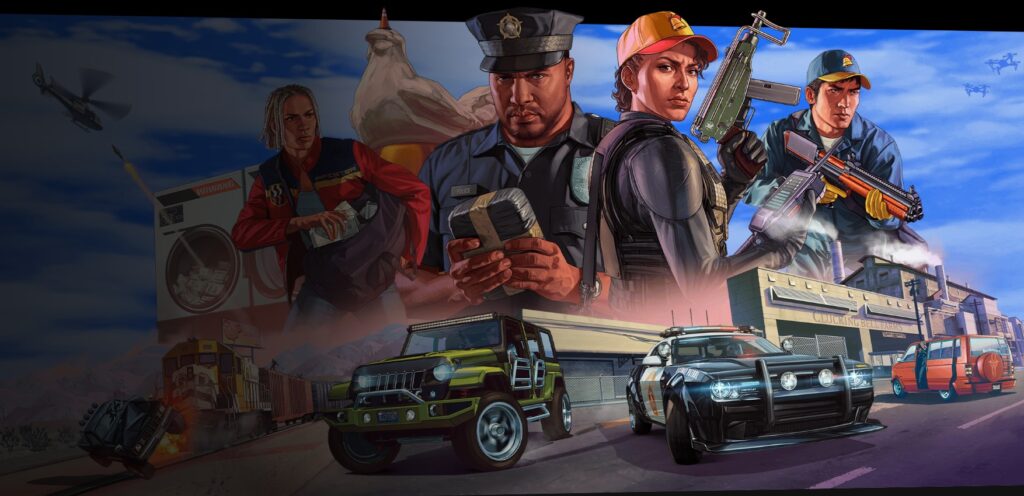
The “Grand Theft Auto” franchise has always reveled in its anarchic spirit, providing a virtual playground for indulging in criminal fantasies. But “GTA Online,” the sprawling multiplayer component of “Grand Theft Auto V,” takes this concept to a whole new level, often blurring the line between harmless mayhem and genuine toxicity.
In the world of “GTA Online,” success is often measured in ill-gotten gains. Players grind relentlessly to accrue wealth and status, purchasing ever-more-outrageous vehicles and weaponry to assert their dominance over the virtual landscape. This relentless pursuit of power fosters a cutthroat environment where griefing, exploiting, and generally making life difficult for others become accepted, even encouraged, behaviors.
While there’s undoubtedly a certain thrill in outwitting and outgunning rival players, the “anything goes” mentality of “GTA Online” can create a hostile and unwelcoming atmosphere, particularly for newcomers. Imagine, for example, spending hours meticulously completing missions to earn enough in-game currency for a coveted sports car, only to have it blown to smithereens by a bored teenager with an arsenal of rocket launchers. It’s this constant threat of random, unprovoked aggression that can sour the experience, transforming what should be a playground for virtual criminals into a breeding ground for genuine frustration and resentment.
To be fair, “GTA Online” isn’t entirely devoid of positive interactions. The game boasts a surprisingly robust role-playing community, where players create intricate characters and engage in cooperative activities, from running virtual businesses to staging elaborate heists. However, these pockets of positivity often feel overshadowed by the pervasive atmosphere of ruthlessness and exploitation, a testament to how easily a game designed for freedom and chaos can devolve into a haven for toxicity.
3. Dragon’s Dogma 2: Moral Ambiguity at its Finest
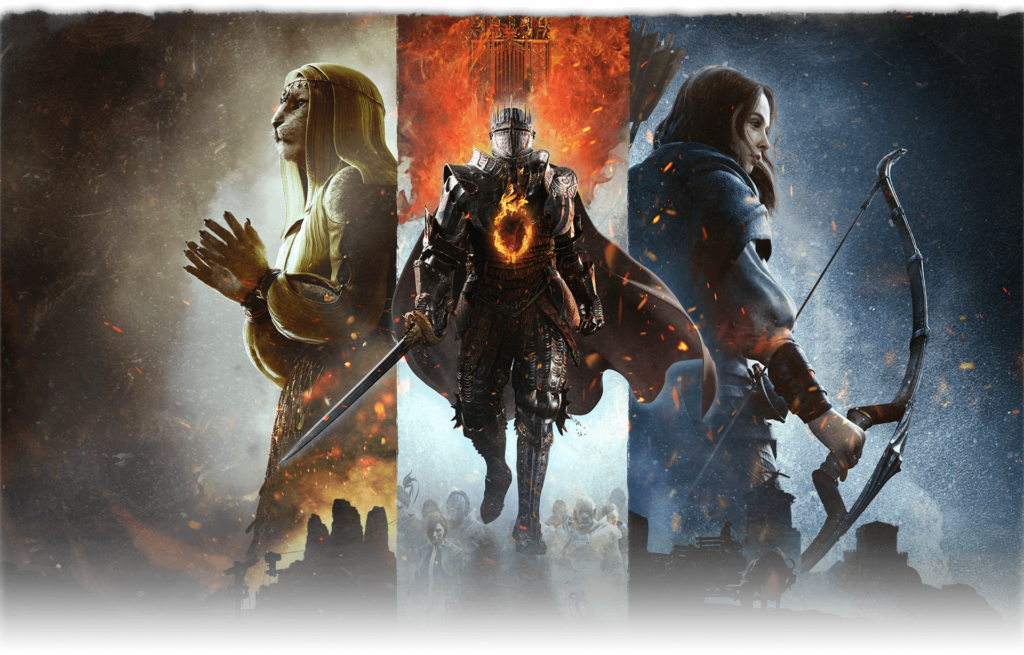
Unlike many RPGs that offer clear-cut choices between good and evil, “Dragon’s Dogma 2” embraces moral ambiguity, thrusting players into a world where the lines between right and wrong are blurred and the consequences of their actions are often unpredictable.
From the outset, “Dragon’s Dogma 2” eschews the traditional morality system. There are no alignment meters, no karma points, and no divine beings judging your every decision. Instead, the game presents a world where morality is subjective, shaped by circumstance and personal interpretation.
This freedom to choose your own path extends to even the smallest of interactions. You can be a selfless hero, aiding those in need and upholding a strict code of honor. Or you can embrace your darker impulses, exploiting the vulnerable, stealing from the unsuspecting, and leaving a trail of chaos in your wake.
The brilliance of “Dragon’s Dogma 2” lies in its refusal to judge your choices. The world reacts to your actions, but it doesn’t punish you for straying from a pre-determined path. This freedom to explore the full spectrum of human behavior, from the noble to the deplorable, creates a refreshingly nuanced and unpredictable experience.
For example, during a particularly challenging quest, you might be tempted to sacrifice a captured bandit to appease a malevolent deity, even though doing so means condemning an innocent soul to eternal torment. Or, you might choose to deceive a grieving widow, stealing her family heirloom to fund your own selfish ambitions. These choices have consequences, both immediate and far-reaching, but the game never dictates the “right” or “wrong” course of action. The choice, and the burden of its consequences, rests solely on your shoulders.
4. Palworld: The Dark Side of Creature Collecting
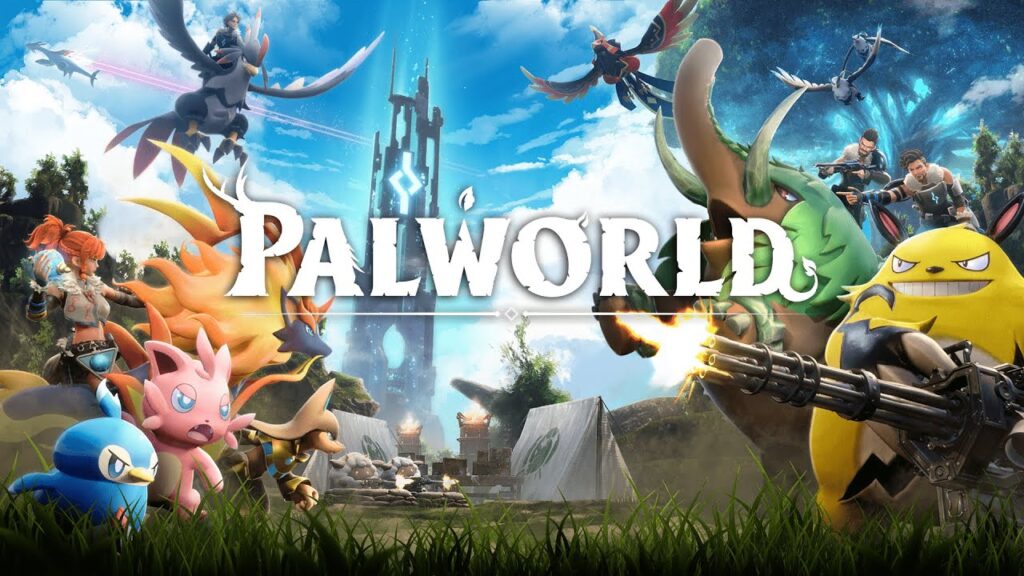
“Palworld” burst onto the gaming scene with a simple, yet provocative premise: what if Pokemon, but with guns? However, beneath its initial shock value lies a surprisingly nuanced and often unsettling exploration of the ethical implications of creature collecting.
In the world of “Palworld,” adorable creatures known as “Pals” are more than just companions or tools for battle; they’re a valuable resource to be exploited for personal gain. Players can capture Pals and force them to work tirelessly in sweatshops, manufacture weapons in dangerous factories, or even fight to the death in gladiatorial arenas.
While “Palworld” doesn’t shy away from the darker aspects of this dynamic, it presents them with a darkly comedic twist. The game’s cartoony visuals and lighthearted tone create a sense of detachment, allowing players to laugh at the absurdity of it all rather than recoil in horror.
However, beneath the humor lies a subtle critique of real-world exploitation and our often-contradictory relationship with the natural world. “Palworld” challenges players to confront the ethical implications of their actions, forcing them to consider the line between companionship and commodification.
For example, you might find yourself agonizing over whether to force a rare and powerful Pal to fight in a tournament, knowing that victory will bring fame and fortune but could also result in serious injury or even death for your loyal companion. Or, you might struggle with the decision to automate your factory with Pal labor, weighing the increased efficiency against the potential for worker exploitation and suffering.
This constant tug-of-war between compassion and greed is what makes “Palworld” such a fascinating and thought-provoking experience. It’s a game that forces players to confront their own moral compasses, asking uncomfortable questions about the limits of our empathy and the true cost of our desires.
5. The Sims 4: Unleashing Our Inner Agent of Chaos

“The Sims” franchise has captivated players for decades with its open-ended gameplay and uncanny ability to simulate the complexities of human life. But beneath its cheerful veneer and seemingly mundane objectives – finding jobs, building houses, raising families – lies a darker truth: “The Sims 4,” perhaps more than any other entry in the series, allows players to indulge in their most devious impulses, transforming their virtual creations from happy-go-lucky digital denizens into unsuspecting victims of elaborate (and often hilarious) acts of cruelty.
Want to trap your Sims in a windowless room with nothing but a easel and a slowly dwindling supply of oxygen? Go for it. Feel like deleting the pool ladder mid-swim and watching your Sims frantically tread water until they succumb to exhaustion? “The Sims 4” won’t judge.
The beauty of “The Sims 4” lies in its open-ended design. The game provides a sandbox for experimentation, allowing players to explore the full spectrum of human behavior, from the mundane to the macabre. And while the game doesn’t explicitly condone or encourage acts of virtual cruelty, it also doesn’t shy away from the consequences. Sims react to their environments and circumstances in surprisingly realistic ways, experiencing emotions like joy, sadness, anger, and even fear.
This responsiveness to player actions is what elevates “The Sims 4” from a simple life simulator to a darkly comedic exploration of human nature. We derive a perverse sense of satisfaction from orchestrating elaborate pranks on our unsuspecting Sims, pushing the boundaries of their digital existence to see how much they can endure before cracking under pressure. And while some might find this type of gameplay disturbing, it also reveals something fascinating about our own psychology: our innate desire to exert control over our environments, even if it means resorting to less-than-ethical means.
6. Baldur’s Gate 3: Embracing the Depths of Depravity
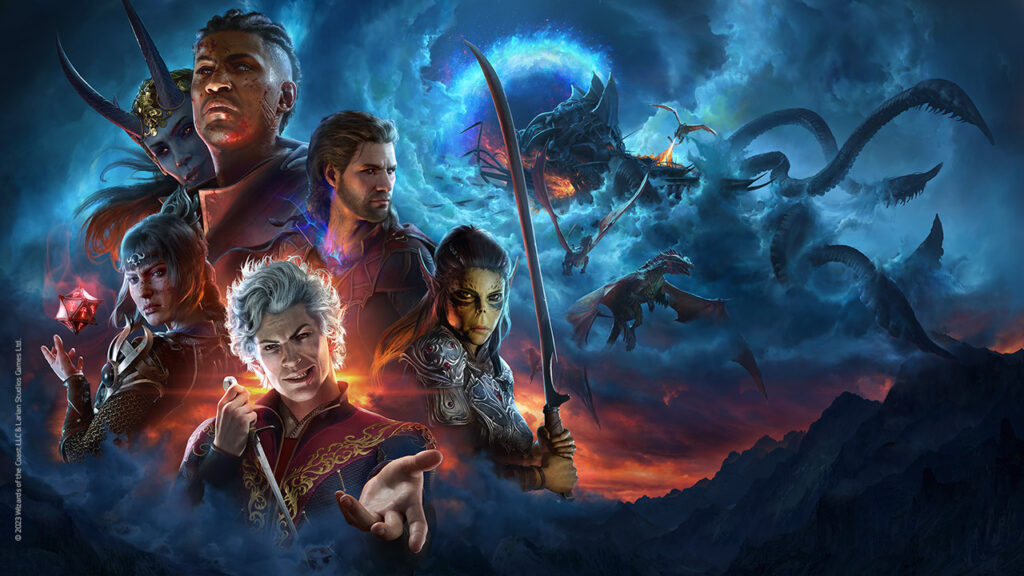
In the realm of RPGs, “Baldur’s Gate 3” stands out for its unwavering commitment to player agency. Unlike games that offer a binary choice between good and evil, “Baldur’s Gate 3” presents a world of nuanced morality, where every decision, no matter how small, ripples through the narrative, shaping not only your own destiny but also the fates of those around you.
This intricate web of cause and effect extends to the very heart of your character’s being. From the outset, you are given the option to embrace the “Dark Urge” – a sinister force that whispers temptations of violence, cruelty, and unrestrained power. Succumbing to the Dark Urge doesn’t lock you into a predetermined “evil” path; rather, it unlocks a series of unique dialogue options, quests, and even companions that cater to your darker impulses.
For example, you might find yourself tempted to betray a trusted ally, sacrificing their life to gain an advantage in battle or secure a powerful artifact. Or, you might succumb to a surge of bloodlust, slaughtering a group of surrendering enemies instead of showing mercy. These choices carry weight, impacting your relationships with companions, altering the course of quests, and even influencing the fate of entire regions.
But the true brilliance of “Baldur’s Gate 3” lies not just in its embrace of moral ambiguity, but in its refusal to judge your choices. The game presents a world where morality is subjective, shaped by personal values, cultural norms, and the ever-shifting tides of circumstance. You might choose to embrace a path of ruthless pragmatism, sacrificing innocent lives to achieve a greater good. Or, you might succumb to the allure of power, transforming from a noble hero into a tyrant who rules through fear and intimidation. The choice, and the burden of its consequences, rests solely on your shoulders.
7. RimWorld: Where Cruelty Becomes Comically Absurd
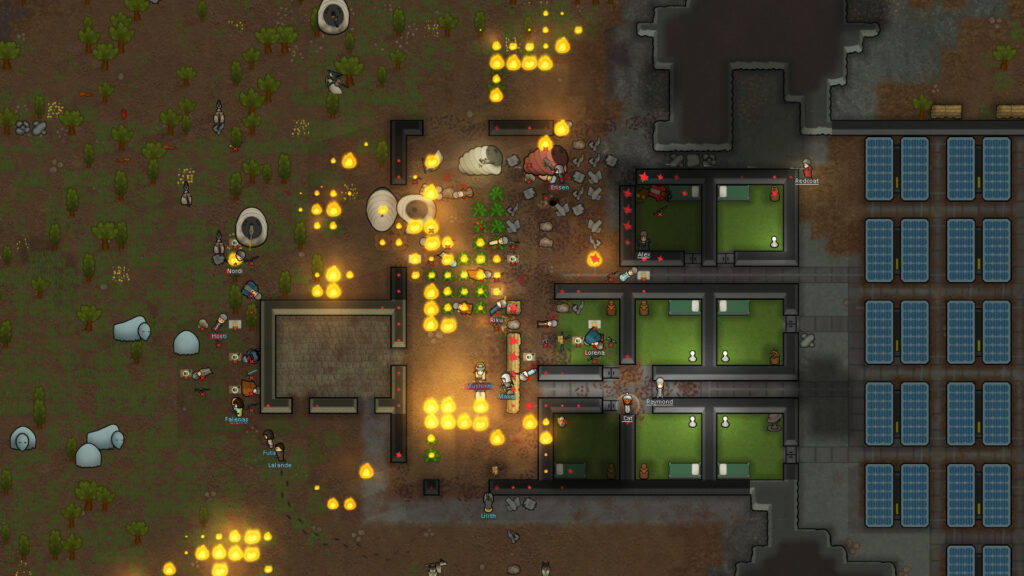
Imagine a game that combines the base-building mechanics of “Dwarf Fortress” with the emergent storytelling of “The Sims,” and then injects it with a potent dose of dark humor and morally ambiguous choices. That’s “RimWorld” in a nutshell – a colony management simulator where survival often hinges on making difficult, and sometimes downright disturbing, decisions.
On the surface, “RimWorld” presents a deceptively simple premise: guide a group of crash-landed colonists as they attempt to rebuild their lives on a hostile alien planet. However, beneath its charming pixel art aesthetic lies a complex and often unforgiving gameplay loop where the line between necessity and cruelty can become blurred.
Need to harvest organs from downed enemies to keep your best doctor alive? Go for it. Facing a food shortage and desperate to survive the winter? “RimWorld” allows you to turn your colonists into cannibals, forcing them to confront the darkest taboos in their fight for survival.
But “RimWorld” is more than just a gratuitous exercise in depravity. The game excels at generating emergent narratives, crafting compelling stories from the interactions between your colonists, their environment, and the often-unpredictable whims of the game’s AI storyteller.
One moment you might be celebrating a successful harvest, the next battling off a raid by crazed pirates or tending to a psychic drone that’s driving your colonists to madness. It’s this constant tension between order and chaos, between maintaining a semblance of morality and succumbing to the brutal realities of survival, that makes “RimWorld” such a captivating and thought-provoking experience.
8. The NBA 2K Series: A Breeding Ground for Toxicity and Greed

Sports games, with their emphasis on teamwork, skill, and fair play, often evoke a sense of purity and athletic idealism. However, the “NBA 2K” series, for all its on-court realism and graphical fidelity, has become synonymous with a darker side of competitive gaming: the insidious allure of pay-to-win mechanics and the toxic behavior they can engender.
At the heart of the “NBA 2K” controversy lies its MyCareer mode, where players create and guide the career of a budding basketball superstar. While MyCareer offers a compelling narrative and a seemingly endless array of customization options, it also introduces a system of virtual currency (VC) that can be earned through gameplay or, more controversially, purchased with real-world money.
This VC serves as the lifeblood of MyCareer, used to improve your player’s attributes, unlock new skills, and even purchase cosmetic items. While it’s technically possible to grind your way to the top without spending a dime, the grind is intentionally arduous, designed to incentivize players to open their wallets and expedite the process.
This pay-to-win structure has a corrosive effect on the “NBA 2K” community, creating a palpable sense of imbalance between those who pay and those who don’t. Players who invest heavily in VC often find themselves with a significant advantage, able to dominate online matches with their artificially inflated stats. This creates a frustrating and disheartening experience for players who choose not to engage in microtransactions, fostering a sense of resentment and animosity within the community.
9. League of Legends: A Recipe for Frustration and Exploitation
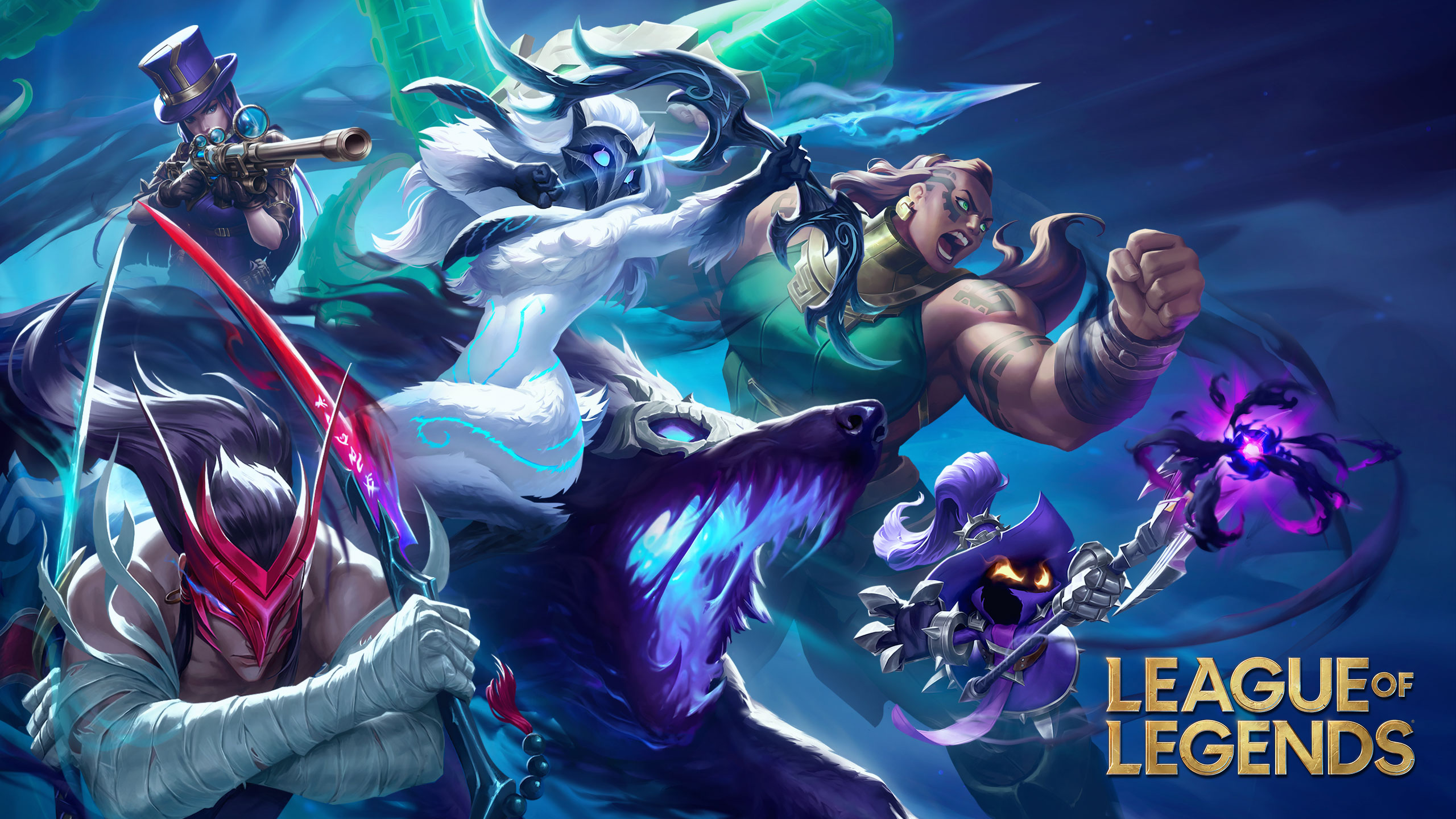
“League of Legends,” the undisputed king of the MOBA genre, has captivated millions of players worldwide with its fast-paced gameplay, strategic depth, and vibrant cast of characters. However, beneath its shiny exterior lies a darker side – a crucible of frustration, toxicity, and predatory monetization that can leave even the most dedicated players questioning their sanity.
At its core, “League of Legends” is a game of inches, where victory often hinges on split-second decisions, flawless execution, and, perhaps most importantly, the ability to work effectively as a team. This heavy reliance on teamwork, while integral to the game’s appeal, also creates ample opportunities for things to go horribly wrong.
One mistimed play, one poorly chosen word in chat, can send a team spiraling into a vortex of blame, negativity, and outright toxicity. It’s not uncommon for matches to devolve into shouting matches, with players resorting to personal insults, threats, and other forms of verbal abuse.
This toxic behavior is exacerbated by “League of Legends'” notoriously unforgiving ranking system. Players are constantly vying for higher ranks, and every loss can feel like a devastating setback. This pressure-cooker environment can bring out the worst in people, leading to a vicious cycle of negativity and abuse.
And then there’s the monetization. While “League of Legends” is technically free-to-play, it’s also a masterclass in psychological manipulation, employing a vast arsenal of cosmetics, loot boxes, and limited-time events designed to entice players into spending money. While these purchases are technically optional, they can create a powerful sense of FOMO (fear of missing out), particularly for players who are deeply invested in the game’s world and lore.
10. Monopoly Go: The Wolf in Sheep’s Clothing
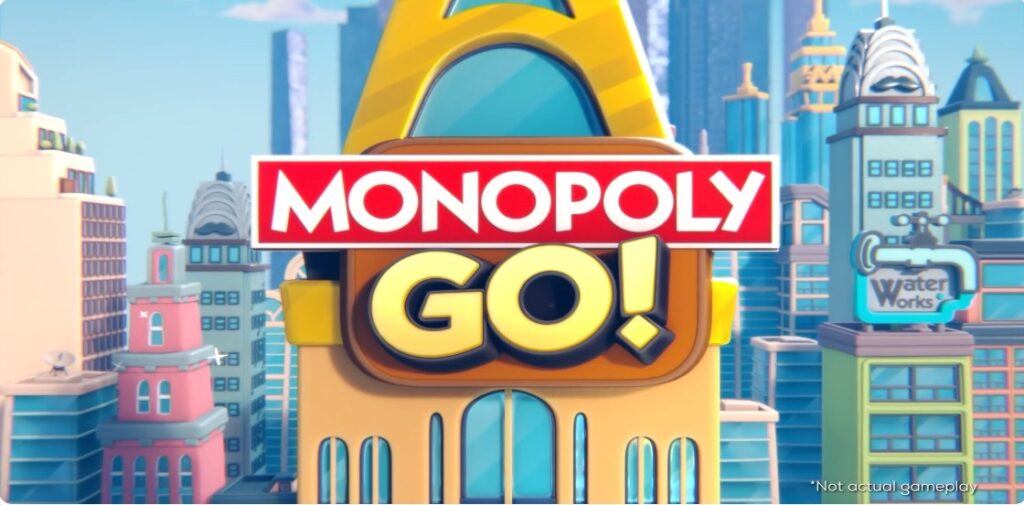
Mobile gaming has become synonymous with predatory monetization, and “Monopoly Go” stands as a shining example of the genre’s darkest impulses. Masquerading as a harmless adaptation of the beloved board game, “Monopoly Go” is, in reality, a masterclass in psychological manipulation, employing a dizzying array of dark patterns and addictive mechanics to extract money from unsuspecting players.
At its core, “Monopoly Go” is less about strategic property acquisition and more about exploiting the brain’s reward pathways. The game bombards players with a constant barrage of flashing lights, celebratory animations, and near-misses – all carefully calibrated to trigger the release of dopamine and create a powerful sense of anticipation.
Every tap, every spin of the virtual dice, is designed to mimic the thrill of gambling, creating a feedback loop that keeps players engaged even when they’re losing (which, in “Monopoly Go,” is often the case).
The game’s monetization strategy is equally insidious. Players are constantly bombarded with offers to purchase virtual currency, dice rolls, and other in-game items. These offers are often presented with timers, creating a sense of urgency and FOMO. And because the game is free-to-play, there’s a low barrier to entry, making it easy for players to rationalize spending a few dollars here and there. However, these small purchases can quickly add up, leading to a slippery slope of spending and addiction.
These 10 games, while diverse in genre and gameplay, all share a common thread: they offer a glimpse into the darker aspects of human nature, revealing how easily our best intentions can be twisted by greed, frustration, and the allure of power. But perhaps more importantly, they remind us that even in the realm of virtual worlds, our choices have consequences, and the decisions we make, no matter how seemingly insignificant, can have a profound impact on ourselves and those around us.
